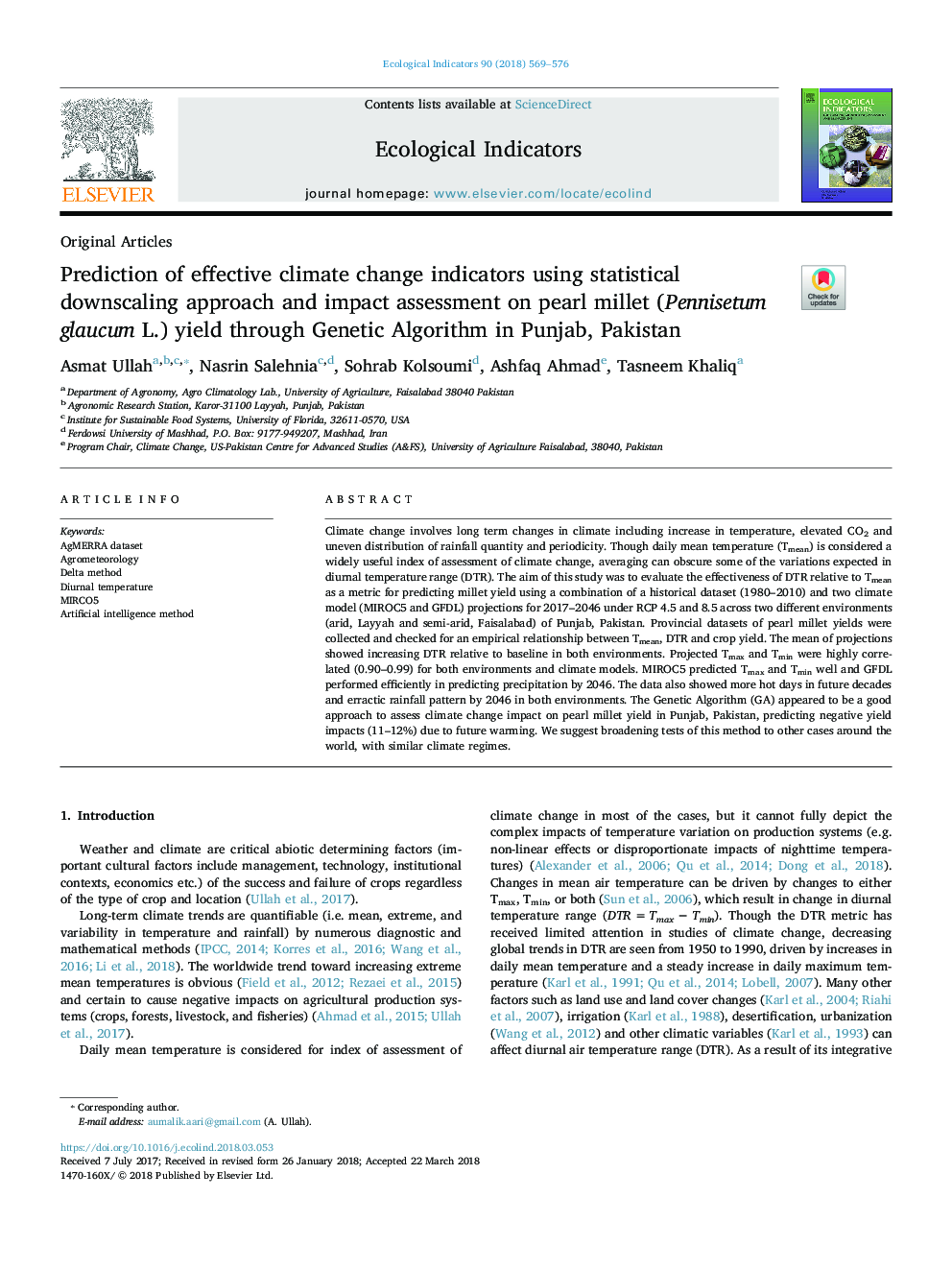| کد مقاله | کد نشریه | سال انتشار | مقاله انگلیسی | نسخه تمام متن |
|---|---|---|---|---|
| 8845487 | 1617112 | 2018 | 8 صفحه PDF | دانلود رایگان |
عنوان انگلیسی مقاله ISI
Prediction of effective climate change indicators using statistical downscaling approach and impact assessment on pearl millet (Pennisetum glaucum L.) yield through Genetic Algorithm in Punjab, Pakistan
دانلود مقاله + سفارش ترجمه
دانلود مقاله ISI انگلیسی
رایگان برای ایرانیان
موضوعات مرتبط
علوم زیستی و بیوفناوری
علوم کشاورزی و بیولوژیک
بوم شناسی، تکامل، رفتار و سامانه شناسی
پیش نمایش صفحه اول مقاله

چکیده انگلیسی
Climate change involves long term changes in climate including increase in temperature, elevated CO2 and uneven distribution of rainfall quantity and periodicity. Though daily mean temperature (Tmean) is considered a widely useful index of assessment of climate change, averaging can obscure some of the variations expected in diurnal temperature range (DTR). The aim of this study was to evaluate the effectiveness of DTR relative to Tmean as a metric for predicting millet yield using a combination of a historical dataset (1980-2010) and two climate model (MIROC5 and GFDL) projections for 2017-2046 under RCP 4.5 and 8.5 across two different environments (arid, Layyah and semi-arid, Faisalabad) of Punjab, Pakistan. Provincial datasets of pearl millet yields were collected and checked for an empirical relationship between Tmean, DTR and crop yield. The mean of projections showed increasing DTR relative to baseline in both environments. Projected Tmax and Tmin were highly correlated (0.90-0.99) for both environments and climate models. MIROC5 predicted Tmax and Tmin well and GFDL performed efficiently in predicting precipitation by 2046. The data also showed more hot days in future decades and erractic rainfall pattern by 2046 in both environments. The Genetic Algorithm (GA) appeared to be a good approach to assess climate change impact on pearl millet yield in Punjab, Pakistan, predicting negative yield impacts (11-12%) due to future warming. We suggest broadening tests of this method to other cases around the world, with similar climate regimes.
ناشر
Database: Elsevier - ScienceDirect (ساینس دایرکت)
Journal: Ecological Indicators - Volume 90, July 2018, Pages 569-576
Journal: Ecological Indicators - Volume 90, July 2018, Pages 569-576
نویسندگان
Asmat Ullah, Nasrin Salehnia, Sohrab Kolsoumi, Ashfaq Ahmad, Tasneem Khaliq,